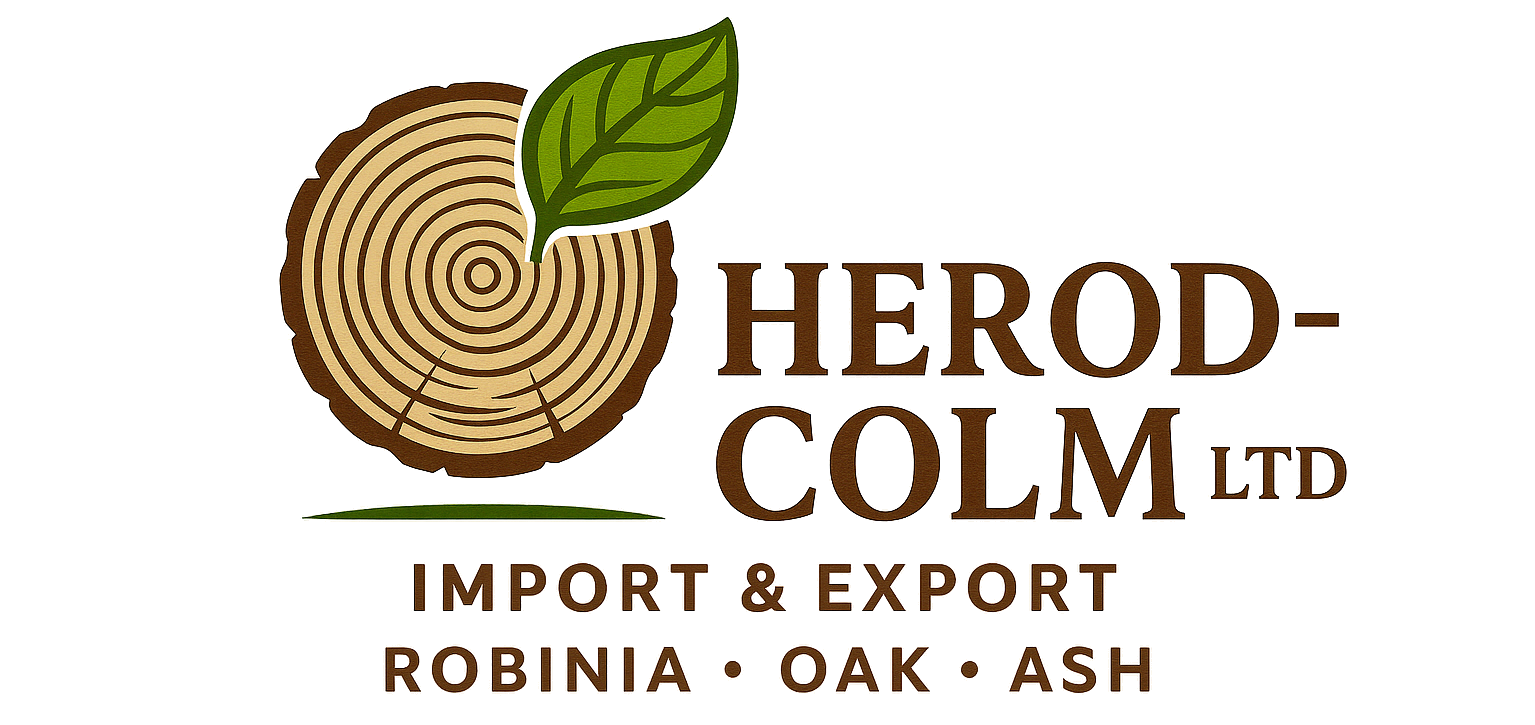Robinia Timber – Characteristics, Applications, and Market Value
Table of Contents
ToggleIntroduction
Robinia pseudoacacia, commonly known as Black Locust or Robinia, is one of the most valuable European hardwood species. It is highly regarded for its exceptional strength, natural durability, and resistance to outdoor conditions. Due to its unique technical properties, Robinia is often considered an excellent alternative to tropical hardwoods, especially in construction, furniture, and exterior applications.
Key Characteristics of Robinia Timber
Durability: Robinia is naturally classified as Class 1 – Very Durable under European standard EN 350. This means it has outstanding resistance to decay, insects, and weathering, without requiring chemical treatment.
Density: With a density of 750–850 kg/m³, Robinia ranks among the heaviest and strongest European hardwoods.
Hardness: It is even harder than oak, making it ideal for heavy-duty flooring and load-bearing structures.
Color & Grain: Robinia has a golden-yellow to greenish-brown color with distinct annual rings and a natural luster, giving it a decorative appearance.
Stability: Excellent dimensional stability with minimal warping or cracking during drying.
Applications of Robinia Timber
1. Outdoor Constructions
Thanks to its outstanding weather resistance, Robinia is widely used for:
garden furniture and playground equipment
decking and cladding
fencing, bridges, and exterior frameworks
2. Industrial Use
Robinia is a popular choice for:
railway sleepers
poles and stakes
components exposed to constant moisture and wear
3. Furniture & Flooring
Its attractive texture and durability make it suitable for:
premium indoor and outdoor furniture
high-quality parquet and flooring solutions
luxury decorative elements
4. Eco-Friendly Alternative
Robinia is often promoted as a sustainable substitute for tropical hardwoods such as teak and ipe. It provides similar durability while being locally sourced within Europe, significantly reducing environmental impact.
Market Demand and Export Value
Robinia timber has strong demand in Western Europe (Germany, Italy, Austria, and beyond), where it is used in high-end construction and decorative applications. Its natural longevity and eco-friendly profile make it a preferred choice for buyers seeking both performance and sustainability.
Conclusion
Robinia timber stands out as one of Europe’s most durable and versatile hardwoods. With its remarkable resistance, appealing aesthetics, and wide range of applications, it is an ideal investment for industries requiring premium materials.
At Herod-Colm LTD, we supply top-quality Robinia raw timber and finished products, fully compliant with European standards. Our commitment ensures consistent quality, reliable logistics, and long-term partnerships for clients across international markets.
